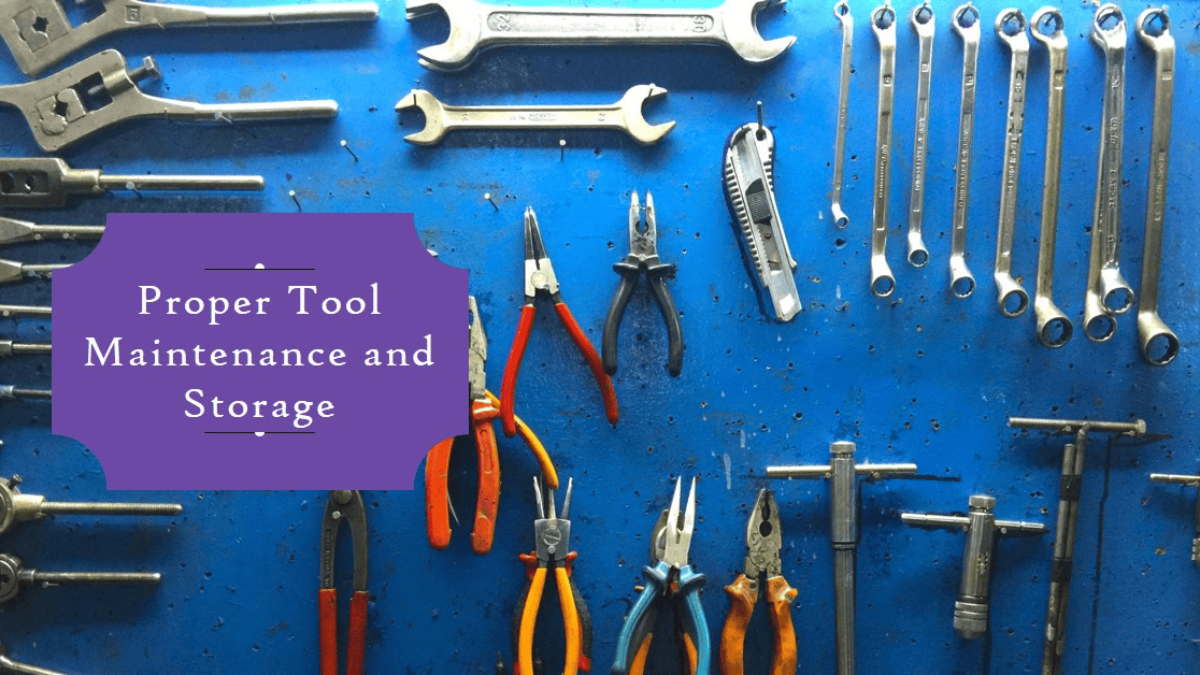Introduction
Proper maintenance and storage of tools are essential practices for any DIY enthusiast or professional tradesperson. Not only does it ensure the longevity and performance of your tools, but it also contributes to a safer working environment. In this guide, we’ll discuss the importance of proper tool maintenance and storage and provide practical tips to help you keep your tools in top condition.
Importance of Proper Tool Maintenance
Proper maintenance of your tools is crucial for several reasons:
- Extends Lifespan: Regular maintenance helps prevent premature wear and tear, extending the lifespan of your tools and saving you money in the long run.
- Ensures Performance: Well-maintained tools perform better, allowing you to work more efficiently and achieve higher-quality results.
- Prevents Accidents: Faulty or poorly maintained tools can pose safety hazards, leading to accidents or injuries. Proper maintenance reduces the risk of accidents and ensures a safer working environment.
Essential Tool Maintenance Practices
- Cleaning: After each use, thoroughly clean your tools to remove dirt, dust, and debris. Use a brush, compressed air, or a damp cloth to clean both the tool and its accessories.
- Lubricating: Apply lubricant to moving parts and mechanisms to reduce friction and prevent rust. Use a lightweight oil or silicone spray for lubrication, avoiding heavy greases that can attract dirt and debris.
- Sharpening: Regularly sharpen cutting tools such as saw blades, chisels, and drill bits to maintain their cutting edge and performance. Use a sharpening stone or file to sharpen blades, following the manufacturer’s recommendations.
- Rust Prevention: Keep your tools dry and store them in a moisture-free environment to prevent rust and corrosion. Apply a rust inhibitor or protective coating to metal surfaces for added protection.
Proper Tool Storage Tips
- Organize Your Toolbox: Keep your tools organized and easily accessible by arranging them neatly in a toolbox or tool chest. Use dividers or foam inserts to separate and protect individual tools.
- Use Protective Cases: For larger or more delicate tools, consider investing in protective cases or sleeves to prevent damage during storage or transportation.
- Store in a Dry Location: Avoid storing tools in damp or humid environments, as moisture can promote rust and corrosion. Store tools in a dry location, away from sources of moisture and direct sunlight.
- Hang or Rack Larger Tools: Hang larger tools such as saws, hammers, and wrenches on hooks or racks to save space and keep them organized. This also makes it easier to see and access your tools when needed.
Conclusion
Proper maintenance and storage of your tools are essential practices that can help you prolong their lifespan, ensure optimal performance, and maintain a safe working environment. By following the tips outlined in this guide, you can keep your tools in top condition and enjoy years of productive use.
FAQs
- How often should I clean and lubricate my tools?
- It’s a good idea to clean and lubricate your tools after each use to prevent dirt buildup and ensure smooth operation.
- Can I use WD-40 as a lubricant for my tools?
- While WD-40 can provide temporary lubrication, it’s not ideal for long-term protection. Use a dedicated lubricant such as silicone spray or machine oil for better results.
- What is the best way to store power tools?
- Power tools should be stored in a dry location away from moisture and extreme temperatures. Consider using protective cases or shelves to keep them organized and protected.
- How do I know when it’s time to sharpen my tools?
- If you notice a decrease in cutting performance or see visible signs of wear on the tool’s cutting edge, it’s time to sharpen it.
- Can I store my tools outdoors?
- Storing tools outdoors exposes them to the elements and increases the risk of rust and corrosion



Add a Comment